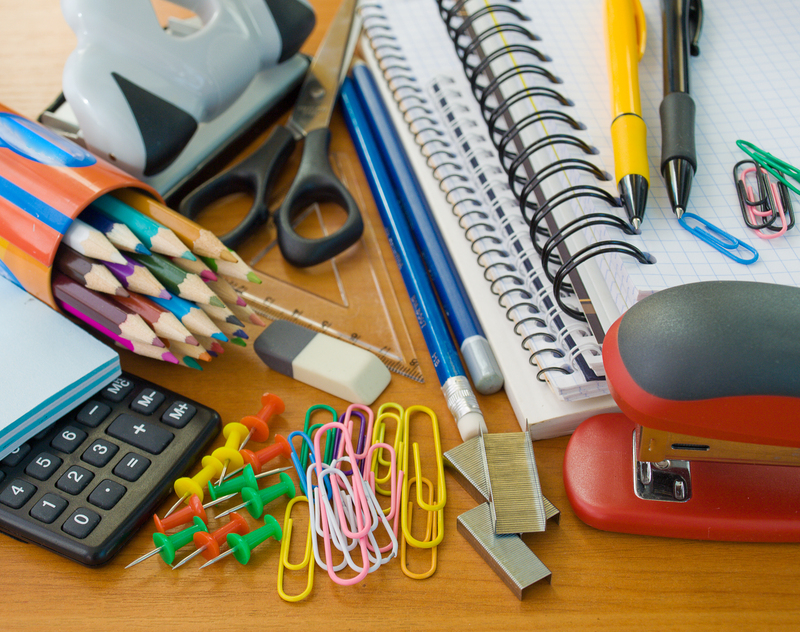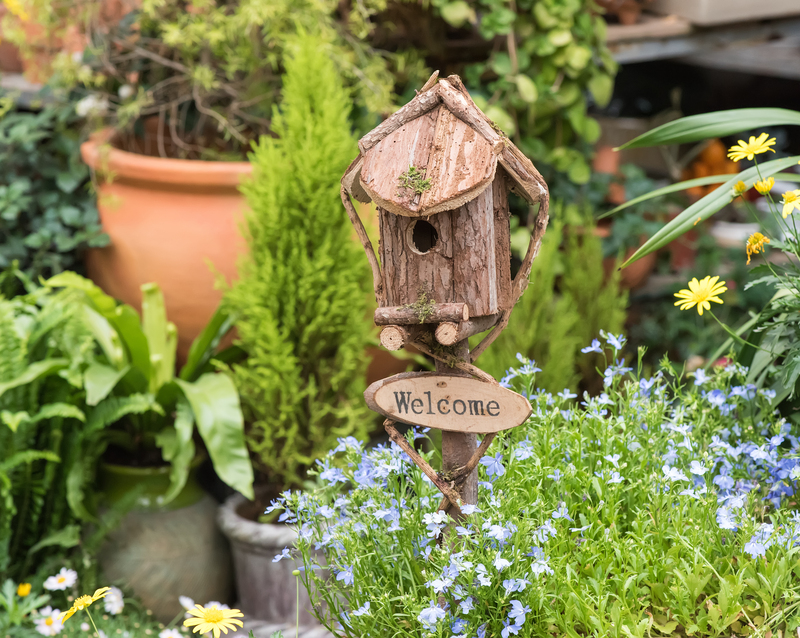Simplify Your Life: Decluttering and Embracing Minimalism
Are you overwhelmed by possessions, commitments, and clutter? Discover how decluttering and embracing minimalism can transform your space, boost your mood, and help you live a more meaningful life. Read on to find actionable tips, proven benefits, and inspiring examples to simplify your life.
What Is Minimalism? Understanding The Core Concept
Minimalism is more than a modern trend--it's a conscious lifestyle choice aimed at helping individuals focus on what truly matters by eliminating unnecessary possessions and distractions. Minimalist living isn't about deprivation; instead, it's about clarity, intentionality, and freedom. As renowned minimalist Joshua Becker says, "Minimalism is the intentional promotion of the things we most value and the removal of everything that distracts us from it."
- Quality over quantity: Keep only what serves a purpose or brings joy.
- Intentional consumption: Avoid mindless buying; focus on essentials.
- Clear space, clear mind: Decluttered environments foster mental wellbeing.
Why Does a Clutter-Free Home Matter?
Research shows that cluttered spaces can increase stress and anxiety, decrease productivity, and even impact your health. By choosing a minimalist lifestyle, you open the door to less stress, more time, and greater happiness.
- Less visual chaos: A tidy space calms the mind and improves focus.
- Fewer cleaning tasks: Fewer items mean less to clean and maintain.
- Freedom from excess: Letting go frees up time, money, and emotional energy.

The Benefits of Decluttering and Living With Less
Embracing minimalism through decluttering yields substantial benefits, both tangible and intangible. Here are some compelling reasons to consider simplifying your environment and routines:
- Improved Mental Health: Decluttering reduces cognitive overload, anxiety, and depression. A more orderly space translates to a more peaceful mind.
- Increased Productivity: Minimalist surroundings eliminate unnecessary distractions, allowing you to focus on priorities and accomplish more.
- Greater Financial Freedom: Consuming less leads to savings, less debt, and financial control.
- Sustainability and Eco-Friendliness: By buying less, you minimize waste and reduce your environmental footprint.
- More Time and Energy: Fewer possessions mean fewer responsibilities, enabling you to invest in hobbies, relationships, and self-care.
- Enhanced Creativity: Simple spaces spark innovation and inspire new ideas.
Real-Life Success Stories & Minimalist Influencers
Countless individuals have shared inspirational journeys toward minimalist living. For instance:
- The Minimalists: Joshua Fields Millburn & Ryan Nicodemus have reached millions through their books, films, and podcasts, sharing how letting go of excess brought meaningful change.
- Marie Kondo: Her "KonMari" method revolutionized the way people approach tidying up, urging us to keep only the things that spark joy.
- Bea Johnson: As a pioneer of the zero-waste movement, she demonstrates how minimalism contributes to a healthier planet and lifestyle.
How to Start Decluttering: A Step-by-Step Guide
Ready to simplify your life? Decluttering can feel intimidating, but breaking it down into actionable steps ensures progress without overwhelm. Below is a practical guide to help you begin your journey:
Step 1: Define Your 'Why'
Before you start tossing items, take time to reflect on your motives. Do you want more peace, less debt, a fresh start, or more time with loved ones? Write down your reasons and revisit them when motivation lags.
Step 2: Set Realistic Goals and Create a Plan
- Room by room: Focus on one space at a time--starting with the area that causes the most stress.
- Time blocks: Allocate manageable time slots (15-30 minutes) per session to avoid burnout.
- Checklist: Make a list of areas to tackle--kitchen, wardrobe, garage, etc.--and check them off as you go.
Step 3: Sort and Categorize
Sort items into distinct piles:
- Keep (items you use or love)
- Donate (things in good condition)
- Sell (for unused but valuable possessions)
- Recycle/Trash (broken or useless items)
Tip: Be ruthless! If you haven't used it in a year, consider letting it go.
Step 4: Organize What Remains
Find each item a designated, accessible location. Use storage solutions minimally to avoid hiding clutter. Labeling helps maintain order.
Step 5: Establish New Habits
- One in, one out: For every new item you bring in, remove one.
- Daily reset: Take 10 minutes each evening to tidy up surfaces.
- Mindful purchasing: Ask yourself if a new purchase truly adds value to your life.
Embracing Minimalism Beyond Possessions
Minimalism isn't just for closets and countertops--it's a philosophy that applies to all life aspects. Let's explore how to extend minimalism to routines, relationships, technology, and beyond:
Minimalist Routines and Time Management
- Pare down commitments: Prioritize tasks and events that align with your core values.
- Say "no" with confidence: Avoid over-scheduling and protect free time.
- Automate and batch tasks: Group similar chores for efficiency.
Digital Decluttering--Finding Simplicity in a Noisy World
- Email Inbox: Unsubscribe, organize folders, and set a regular routine for checking emails.
- Smart Device Management: Delete unused apps, turn off unnecessary notifications, and limit screen time.
- Social Media: Follow only accounts that inspire, educate, or genuinely connect with you.
Minimalist Relationships
Prioritize nurturing, positive connections and gently create distance from toxic or draining relationships. Invest time in people who uplift and support your goals.
Minimalism in Finances
- Simplify spending: Cut unnecessary subscriptions and impulse buys.
- Budget with intention: Allocate money towards experiences, savings, and essentials.
- Invest in quality: Buy fewer, long-lasting items instead of many cheap ones.
Common Challenges in Minimalism--And How to Overcome Them
The path to minimalist living isn't always easy. Here are common roadblocks and tactics for surmounting them:
- Emotional attachment: If you struggle to part with sentimental items, photograph them for your memory or create a keepsake box for essentials.
- Fear of scarcity: Remind yourself that most items can be replaced if truly needed; trust your ability to adapt.
- Lack of support: Share your minimalism journey with loved ones or online communities for encouragement and accountability.
- Perfectionism: Minimalism is personal and evolving--don't compare your progress to others; celebrate small victories.
Inspiring Minimalist Practices for Every Home
Whether you live in a studio apartment or a family house, these minimalist habits can help maintain a serene, functional space:
- Regular Reviews: Every few months, assess your belongings.
- Declutter hot spots: Tidy up entryways, countertops, and drawers weekly.
- Mindful Decor: Adorn spaces with a few meaningful, quality pieces.
- Capsule Wardrobes: Build a seasonal wardrobe with versatile outfits.
- Minimalist Meal Prep: Plan simple, nourishing meals to save time and reduce food waste.

Minimalism for Families--Decluttering Together
Simplifying with kids and partners may seem daunting, but it brings families closer and teaches valuable life skills.
- Lead by example: Show your commitment by decluttering your own belongings first.
- Make it a game: Turn decluttering sessions into challenges with rewards.
- Communicate benefits: Help children understand why you're embracing minimalism--more play space, easier cleanup, and less stress.
- Rotate toys: Keep a small selection accessible and store the rest, rotating them periodically.
Teaching Kids About Minimalism
Involve children in donation decisions and encourage gratitude for what they have. Minimalist families often find more time for outdoor adventures, creativity, and togetherness.
Simplify Your Life Today: Minimalism As a Lifestyle
Ultimately, minimalist living is a journey, not a destination. It's about consciously deciding what adds value to your life--and letting go of the rest. By decluttering your space and adopting minimalist principles, you pave the way for greater freedom, happiness, and purpose.
- Start small, but start today.
- Be patient and gentle with yourself.
- Celebrate the calm, clarity, and joy that comes from living with less.
Resources for Further Exploration
- Books: "The Life-Changing Magic of Tidying Up" by Marie Kondo, "Essentialism" by Greg McKeown
- Websites: Becoming Minimalist, The Minimalists
- Documentaries: "Minimalism: A Documentary About the Important Things"
Embrace the journey of decluttering and minimalism today. Simplify your life, reclaim your time, and rediscover what truly matters!